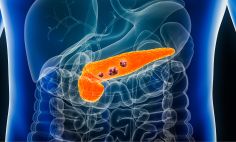If you live with migraine, one of the best things that you can do is identify your personal triggers. You can’t always avoid triggers, but understanding what they are and how they affect you is the first step to finding relief. Once you’ve isolated the trigger, you can try a coping strategy.
- Stress. Stress is one of the most common triggers among people with migraine.
- How to cope: Unfortunately, stress isn’t always avoidable, but stress-relieving activities such as exercise, meditation, or yoga can help. Therapy can also help you learn new strategies for coping with stress; if you aren’t currently working with a therapist, ask your primary care doctor for a referral.
- Hormones. Changes in hormones over the menstrual cycle and during pregnancy can trigger migraine attacks for some people.
- How to cope: If you think there’s a link between your migraine attacks and your hormones, bring it up with your doctor. Some people get migraine relief with hormonal treatments such as birth control and hormone replacement therapy.
- What you eat. Fermented or pickled foods, aged cheeses, and processed or cured meats (like hot dogs and lunch meats) can all be triggers, and so can some preservatives that are found in many foods.
- How to cope: Talk with your doctor about your trigger foods. If you know what they are, consider removing them from your diet (or cutting down on them). If you’re not sure, ask your doctor about trying an elimination diet (an eating plan that removes all the foods or food groups that could impact your migraine attacks). Cutting all the suspected culprits out of your diet for a few weeks, then reintroducing them one at a time, can help narrow down which foods are likely to be triggers.
- You could also try eating new foods. According to NIH research, diets that are low in vegetable oils and high in fatty acids (such as those found in fish) may help control migraine.
- When you eat. Eating meals at different times of day or skipping a meal may also trigger migraine attacks or make them worse.
- How to cope: Eat at the same time every day and try not to skip meals.
- What you drink. Alcoholic beverages―especially wine―can trigger migraine attacks in some people. Too much coffee and even caffeine withdrawal can also be a trigger.
- How to cope: Alcohol and coffee can dehydrate the body, which can trigger migraine attacks or make them worse. Try avoiding alcohol and gradually reducing your caffeine intake. Stay hydrated, practice moderation, and know your personal limits.
- The weather. Sudden changes in the weather such as temperature, atmospheric pressure, and even seasonal changes can all trigger migraine attacks.
- How to cope: Keep an eye on the weather forecast and try to avoid your other triggers, especially when a big weather change is coming. If you get lots of migraines when it’s hot outside, stay inside where it’s cool, and try to hydrate by drinking plenty of liquids (always a good idea).
- Your sleep. Not getting enough sleep or sleeping too much can be a migraine trigger. A serious medical condition called sleep apnea is also associated with migraine.
- How to cope: Try to get between seven and nine hours of sleep each night and talk to your doctor if you have concerns about your sleep or think you might have sleep apnea.
- Your environment. Bright lights, loud noises, and strong smells can all be triggers, and they can make symptoms worse during an attack.
- How to cope: Avoid or reduce your exposure to these triggers when you can and ask the people around you to help. Ask your office mate to leave their perfume or cologne at home, block bright outdoor light with dark sunglasses, and try wearing earplugs or noise-canceling headphones to muffle loud sounds.
- Medication overuse. Some medications, including ones used to treat migraine, can cause or worsen migraine symptoms if you take them too often.
- How to cope: Make sure you know the recommended dose and frequency for any medications you’re taking. If a medication you take is causing an increase in your migraine attacks, talk with your doctor about switching to a different drug.
- Smoking and tobacco. The nicotine in cigarettes and e-cigarettes constricts blood vessels in your brain by making them narrower and tighter, which can trigger migraine attacks.
- How to cope: If you smoke or use tobacco products, make a plan to quit. If you don’t use tobacco products, it’s always a good idea to stay away from secondhand smoke.
- How to cope: If you smoke or use tobacco products, make a plan to quit. If you don’t use tobacco products, it’s always a good idea to stay away from secondhand smoke.







